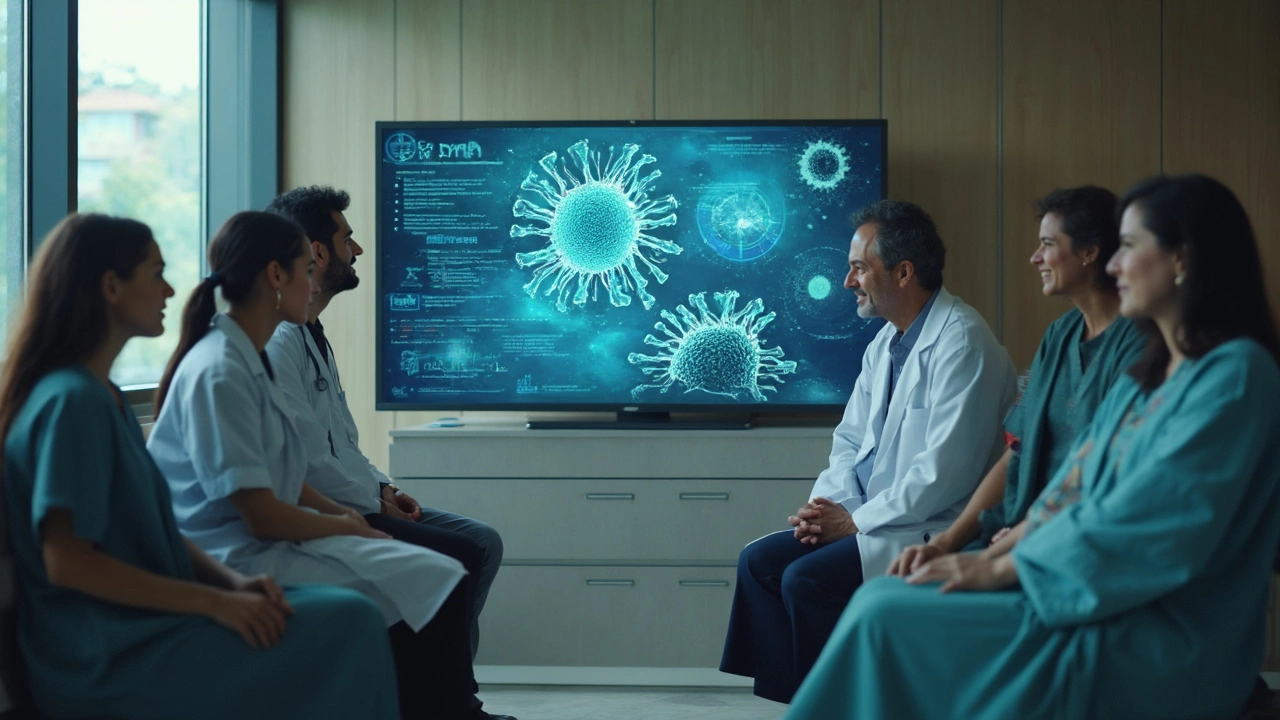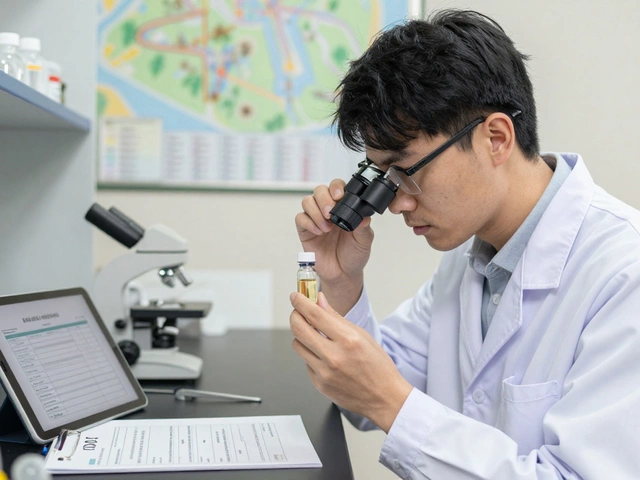Some cancers still have no cure, even with the latest treatments. This article breaks down why certain cancers remain deadly and what that actually means for people diagnosed with them. You'll learn about the types of cancer still considered incurable, what current treatments can do, and where hope and research are heading. Plus, get practical advice for navigating tough news and making decisions. Think of it as a straight-talking guide for a topic that’s as serious as it gets.
Read MoreCancer Facts: What to Know About Early Signs and Detection
When you hear the word "cancer" it can feel scary, but knowing the facts makes it less overwhelming. Most people think cancer shows up suddenly, yet many types grow silently for months or even years. Understanding how long cancer can stay hidden, what early signals to watch for, and simple steps you can take to lower risk is the best way to stay ahead.
How Long Can Cancer Stay Hidden?
Research shows some cancers can grow for years without obvious symptoms. For example, certain breast and prostate cancers can be present for 5‑10 years before a lump or test result flags them. Lung cancer often hides until coughing or shortness of breath appears, and that can be a decade after the first cells change. The hidden period depends on the cancer type, where it starts, and how fast the cells multiply.
Because the body can adapt to slow‑growing tumors, you might feel fine—no pain, no noticeable change. That’s why regular screening matters. Mammograms, colonoscopies, and low‑dose CT scans catch many cases early, when treatment works best. If you skip these checks, you risk discovering cancer at a later stage, which can limit options and make recovery tougher.
Top Early Warning Signs
While every cancer is different, a few signals pop up in many cases. Keep an eye on these and talk to a doctor if they linger:
- Unexplained weight loss – dropping several pounds without trying.
- Persistent fatigue – feeling tired even after rest.
- Changes in skin – new lumps, sores that won’t heal, or darkened patches.
- Unusual bleeding – coughing up blood, blood in urine, or spotting between periods.
- Persistent pain – especially if it’s new or worsening.
These signs don’t guarantee cancer, but they’re worth a check‑up. Early detection often means simpler treatment and a better chance of full recovery.
Another practical tip: know your family history. If close relatives had cancer, you may need earlier or more frequent screenings. Genetics isn’t the whole story, but it adds a layer of risk you can manage with a doctor’s guidance.
Besides watching for signs, you can lower your chances with everyday habits. Quit smoking, limit alcohol, eat plenty of fruits and vegetables, and stay active. Even modest changes—like a 30‑minute walk most days—can boost immune health and help your body repair DNA damage.
Finally, remember that mental health matters too. A cancer diagnosis can be stressful, and stress can affect how the body handles disease. Reach out to support groups, counselors, or trusted friends if you need to talk.
In short, cancer facts are simple: it can hide for years, early signs are often subtle, and regular screening saves lives. Keep the checklist handy, stick to recommended tests, and live healthily. Knowing the facts gives you power to act before cancer gets a foothold.





